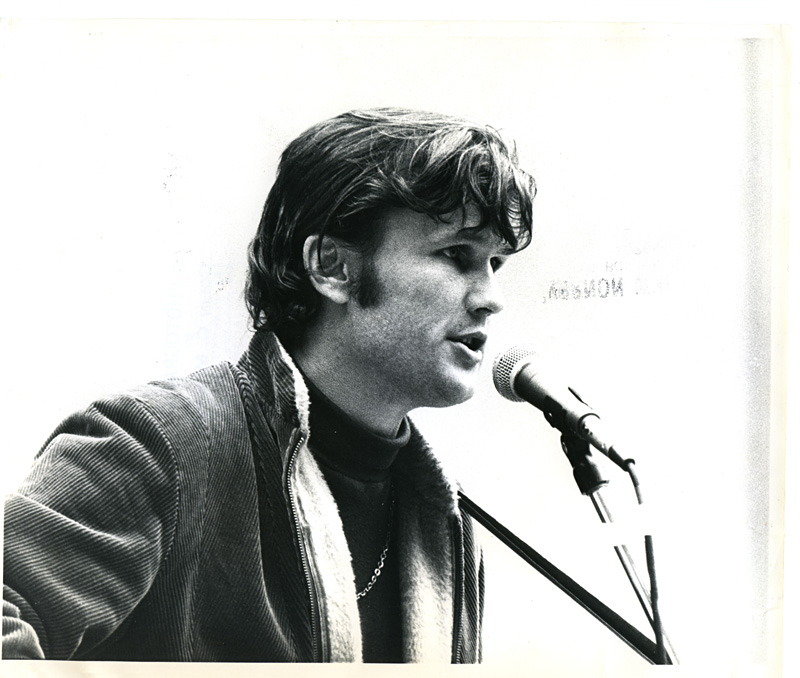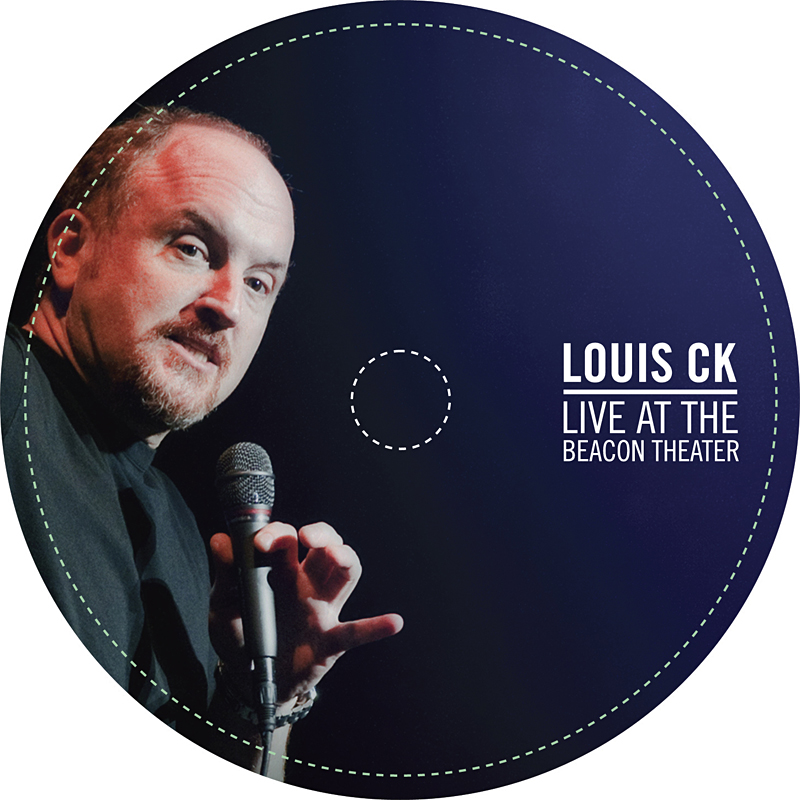If Matt Sullivan has proven anything, it’s that he’s really good at pestering people. Since launching Light in the Attic Records in 2002 with Josh Wright, Sullivan has bugged the hell out of punk icon Iggy Pop, porn legend Ron Jeremy, rap pioneer Chuck D, and Woodstock impresario Michael Lang, to name a measly few.
“The only time I kept track of everyone I talked to was with a Wayne McGhie reissue we did,” he says. “And that ended up being a three- or four-page Word document.”
Naturally, he’s kicking himself for not keeping a similar list for LITA’s 50th release, Kris Kristofferson: Please Don’t Tell Me How the Story Ends: The Publishing Demos 1968–1972 (in stores Tues., May 11). Six years in the making, the list of people Sullivan hassled for this release would likely have a page count on par with that of this alt-weekly you’re holding. Discovered 10 years ago by producer Mark Linn (while rummaging through EMI’s publishing vault in Nashville), these demos found their way into Sullivan’s hands after being introduced to Linn via his former employer, Al Milman, owner of long-gone U District record shop Bedazzled Discs. Sullivan and Linn then spent about a year tracking down Kristofferson to convince him and his wife/manager Lisa Kristofferson to agree to the reissue.
“And no joke,” says Sullivan. “The next four years were spent trying to figure out who owned the damn thing.”
Light in the Attic largely traffics in reissues of albums that should have been considered groundbreaking classics, but for whatever reason were ignored in their time and lost to the dustbin of history. Before Light in the Attic can re-release such albums, they have to get permission. Sometimes the artists themselves own the rights to their work, other times a label or publisher does. But often those labels or publishers were obscure ones that either folded years ago or were swallowed by a larger, corporate entity like Warner Music or Sony Music. Needless to say, tracking down who owns the rights to something can be a time-consuming cat-and-mouse game. But LITA doesn’t just unearth albums, they unearth the stories behind the albums and, at best, the artists who made them, which translates into seemingly endless hours of research for a label that employs only five people.
Research is not something most labels have to tussle with; it would seem counterproductive to spend time on it, given the music business’ current sluggishness. But for Sullivan and Wright, playing detective and releasing old records is a formula that has paid off—with 50 releases under their belt, they estimate they’ve sold “well into the hundreds of thousands” thus far.
Of course, they haven’t been on a winning streak from the start. Sullivan and Wright both admit that their forays away from reissues and into new releases went a bit wonky. In 2006, they had some success signing Texas psych-rockers the Black Angels (Wright says seeing them go from total unknowns to well-knowns with LITA’s help is something he’s quite proud of). But they couldn’t quite repeat that success when they signed Seattle-based garage rockers the Blakes and Tacoma rap throwbacks the Saturday Knights.
“It’s a whole other world,” says Sullivan of working with new artists. “There’s too many cooks in the kitchen. There’s more risk involved.” Though both these latter bands did well locally, LITA discovered it was much harder to break through on a national level.
“It’s unfortunate, but music becomes secondary,” says Wright of dealing with new artists. “With reissues, music always stays on the forefront.”
As Wright also notes, it’s easier to guesstimate the sales of a re-release—for artists with no established fan base, it’s a total crapshoot. When mulling over a particular reissue, he and Sullivan take note of whether the album has been reissued by another label in, say, Europe. If it hasn’t, they know the demand will be much higher. In addition, because Wright deals with retailers directly as part of LITA’s direct-sales business model, he has established relationships with owners and can ask whether or not they think a certain record might sell in their stores. While this might sound as if they’re playing it safe, it could be argued that after their mixed success signing new bands, LITA has realized that, for right now at least, being conservative and sticking to what they know is the best way to weather the perfect storm that is today’s music market.
The Kristofferson record is a prime example of LITA at its best. And how better for the label to celebrate 50 releases in seven years than by making the 50th its biggest to date? After six years of work, LITA is able to give the world a batch of songs that show an American legend at his peak. These 16 previously unheard tracks were recorded for a publishing company in Nashville as Kristofferson was honing his craft. A Rhodes scholar and former U.S. Army Airborne Ranger, Kristofferson went to Nashville with a hard-on for Hank Williams and Shakespeare and began writing songs that elevated country music to the level of good poetry and storytelling. While Kristofferson is a pop icon of sorts, known for his movie roles (Alice Doesn’t Live Here Anymore) and for performing alongside Barbra Streisand, he is not often credited for what he brought to country music, conveying intellect and grit in equal measure. In addition to the music, LITA’s Kristofferson package comes with a 60-page booklet (the label’s thickest to date) packed with archival photos, testimonials from Merle Haggard, Dennis Hopper, and Kinky Friedman, and exhaustive liner notes from MOJO‘s Michael Simmons. (Full disclosure: I too have penned liner notes for a LITA reissue, Karen Dalton’s debut LP.)
The label’s already sold their entire first pressing of the record to retailers—which means it will be in stores on Tuesday—and are headed back to the presses for another run. And both partners are pleased enough knowing Kristofferson himself is happy with the work they put in.
“I don’t think he realized the scope of what we were doing,” says Sullivan. But Kristofferson’s pleased because LITA’s release strips his massive talent to the bone. These demos are rough and skeletal. Thus, Kris the Legend is forced to take a backseat to Kris the Songwriter. In many ways, listening to this album is like hearing the man for the very first time. And that, Wright says, is a point of pride with their reissues.
“Whether it’s Rodriguez or Karen Dalton or Betty Davis,” he says, “we always approach these projects as if they were a new artist.”








